Welcome to our guide on how to combat dry scalp and achieve a healthy, moisturized head of hair with minimal effort. Dealing with dry scalp can be uncomfortable and frustrating, but fear not! In this comprehensive tutorial, we will walk you through four simple yet highly effective steps to help you bid farewell to dryness and embrace a more nourished, revitalized scalp. From easy-to-follow scalp massages to choosing the right products that cater to your specific needs, we’ve got you covered. Say goodbye to itchiness and flakiness and get ready to enjoy a healthier scalp and luscious locks with our hassle-free solutions. Let’s dive in and discover how you can reclaim the beauty and comfort of a well-hydrated scalp in no time!
What is dry scalp?
Dry scalp is a common and often bothersome condition that affects many individuals. It occurs when the scalp does not receive sufficient moisture or natural oils, leading to a lack of hydration and potential discomfort. While dry scalp and dandruff share some similar symptoms, they are distinct conditions with different underlying causes and treatments.
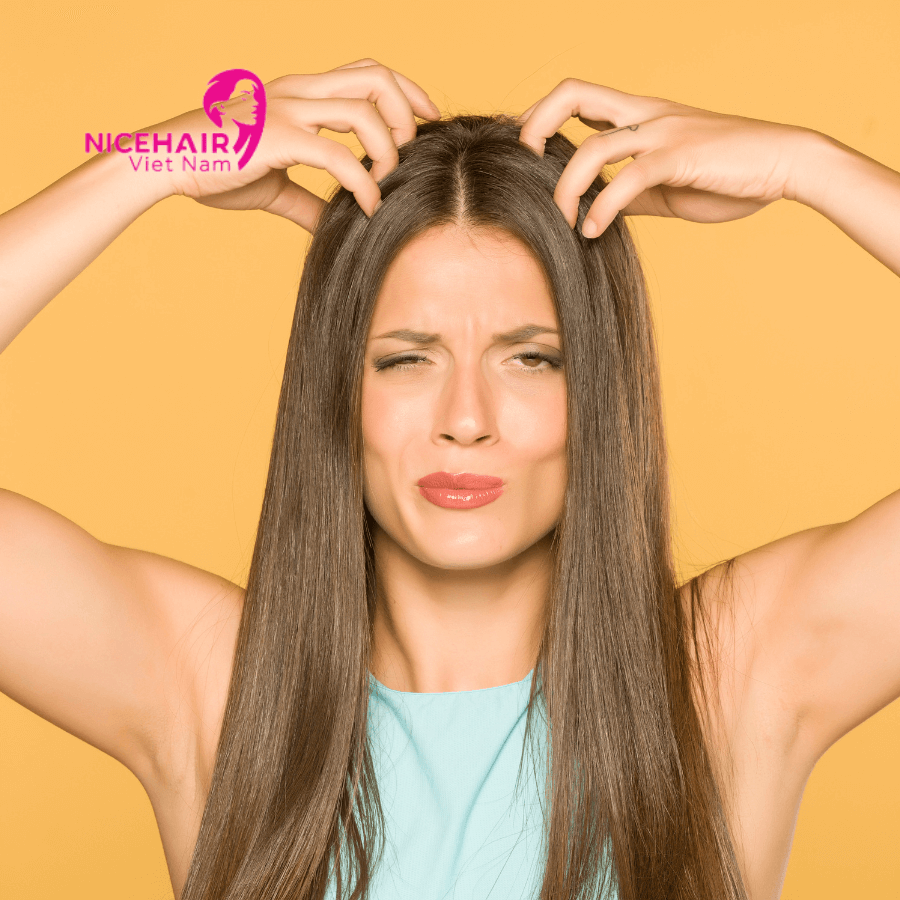
The skin on our scalp, like the skin on the rest of our body, relies on a delicate balance of oils and moisture to stay healthy. When this balance is disrupted, the scalp can become dry and sensitive. Several factors can contribute to dry scalp:
Environmental factors
Environmental factors are known to play a substantial role in causing dry scalp, and understanding their impact can help in effectively managing and preventing this condition. The weather and climate, in particular, can have a significant influence on the health of our scalp and hair.
During colder months, when the air is dry and temperatures drop, the lack of humidity can deplete the moisture in both the hair and scalp. The result is often a parched and itchy scalp, as well as brittle, lackluster hair. Similarly, excessively hot and dry conditions can also contribute to dryness by robbing the scalp of its natural oils.
In cold weather, we tend to seek warmth indoors, which can lead to increased exposure to indoor heating systems. These artificial heat sources can further exacerbate the dryness, as they reduce the moisture content in the air, causing the scalp and hair to lose essential hydration.
Conversely, in hot climates, the intense heat can cause sweating, which, when combined with the lack of humidity, can leave the scalp feeling dry and irritated. Additionally, excessive sun exposure can damage the hair cuticles and weaken the scalp’s protective barrier, making it more susceptible to dryness and irritation.
To mitigate the effects of these environmental factors on our scalp, it’s essential to take proactive measures. During colder months, protecting your head with a hat or scarf can shield your scalp from harsh weather conditions and help retain its natural moisture. Additionally, using a humidifier indoors can introduce moisture back into the air, preventing excessive drying of both the scalp and hair.
In hot climates, seeking shade and wearing a wide-brimmed hat can provide some relief from direct sun exposure, protecting the scalp and hair from harmful UV rays. Applying a leave-in conditioner with UV protection can also help maintain the hair’s moisture and prevent sun-induced damage.
Overwashing
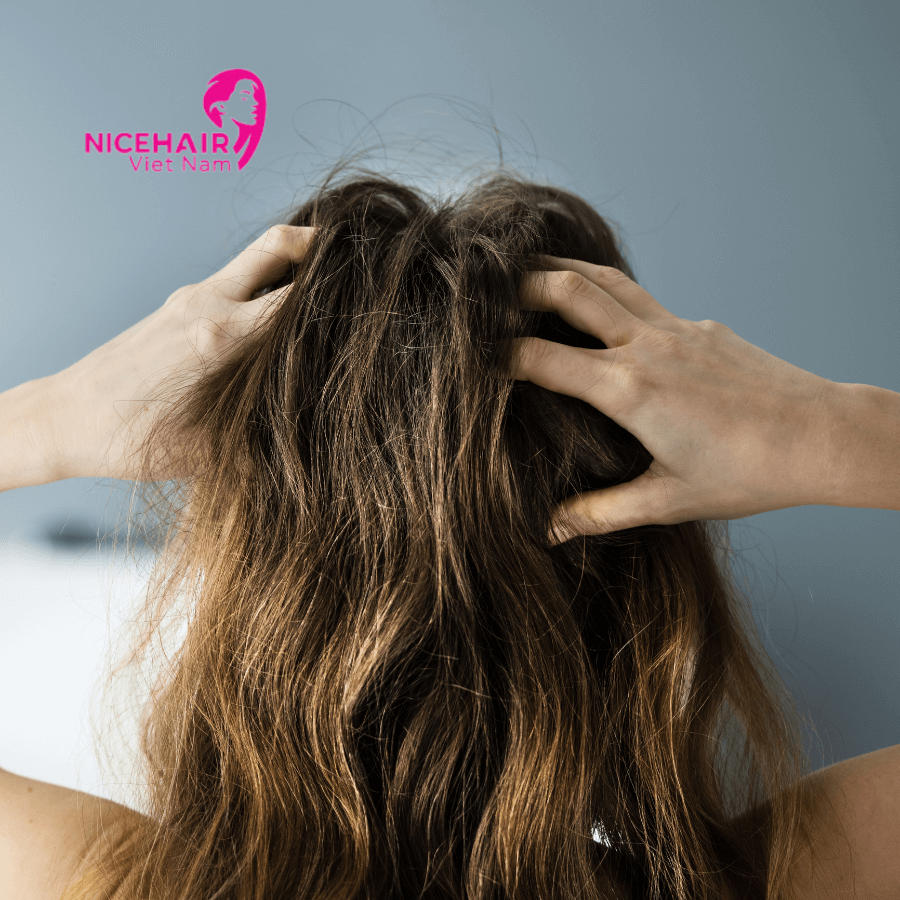
Overwashing your hair is a common hair care mistake that can have detrimental effects on your scalp health. The frequent use of harsh shampoos or washing with hot water can disrupt the delicate balance of natural oils on your scalp. These natural oils are essential for maintaining scalp hydration and protecting it from dryness and irritation.
When you wash your hair too often with harsh shampoos, you inadvertently strip away the scalp’s sebum, which is the natural oil produced by your scalp. Sebum plays a crucial role in lubricating the scalp and hair, providing a protective barrier against external elements and locking in moisture. However, excessive washing can disrupt this natural process, leaving your scalp vulnerable to dryness and itchiness.
Using hot water during hair washes exacerbates the issue by further removing the scalp’s natural oils. The high temperature of the water can open up the hair cuticles, making it easier for the essential oils to be washed away. As a result, your scalp may become dry and uncomfortable, leading to irritation and flakiness.
To maintain a healthy scalp and prevent dryness, it’s essential to strike a balance with your hair washing routine. Unless you have particularly oily hair, washing your hair every day is often unnecessary. Instead, consider washing your hair every other day or every few days to allow your scalp’s natural oils to replenish and hydrate your scalp.
When washing your hair, opt for mild, sulfate-free shampoos that are gentle on the scalp and hair. These types of shampoos will cleanse your hair without stripping away too much of the natural oils. Additionally, using lukewarm water instead of hot water during hair washes can help retain the scalp’s natural oils and promote a healthier scalp environment.
Chemical hair treatments
Chemical hair treatments have become popular for their transformative effects on hair, allowing individuals to experiment with various styles, colors, and textures. However, while these treatments can produce stunning results, they also come with the potential risk of damaging the scalp and hair if not performed or maintained correctly.
Hair dyes, for instance, contain chemical ingredients that penetrate the hair shaft to alter its natural color. During this process, some of these chemicals may come into contact with the scalp, leading to potential irritation and dryness. Additionally, frequent use of hair dyes can weaken the hair shaft, making it more susceptible to breakage and further exacerbating dryness issues.
Relaxers are another common chemical treatment used to straighten curly or wavy hair. These products contain strong chemicals that break the hair’s natural protein bonds, altering its structure to achieve a straightened look. However, the application of relaxers can be harsh on the scalp, as the chemicals can cause burns, irritation, and dryness if not applied correctly.
Perms, on the other hand, involve the use of chemicals to create curls or waves in straight hair. The process of perming can also lead to scalp dryness and irritation, especially if the chemicals are left on for too long or if the hair is over-processed.
In addition to the direct effects of chemical treatments on the scalp, the aftercare and maintenance of chemically treated hair are equally critical in preventing dryness. For instance, using the wrong hair care products, such as shampoos containing harsh sulfates, can strip the hair and scalp of natural oils and exacerbate dryness.
To mitigate the potential damage caused by chemical hair treatments, it’s essential to take precautions and follow proper aftercare procedures. If you decide to undergo a chemical hair treatment, seek the expertise of a professional stylist who can assess your hair and scalp health and choose the most suitable products and techniques for your specific needs.
After a chemical treatment, use gentle, sulfate-free shampoos and moisturizing conditioners to maintain the health and hydration of your scalp and hair. Regular deep conditioning treatments can help replenish moisture and repair any damage caused by the chemical process.
Incorrect hair care products
Selecting the right hair care products is essential in maintaining the health and balance of your scalp and hair. Unfortunately, using products that contain harsh chemicals or irritants can be a common mistake that unknowingly contributes to dry scalp issues. These products can strip the scalp of its natural oils, disrupt its moisture barrier, and lead to discomfort and dryness.
One common culprit is shampoos containing sulfates, which are powerful surfactants responsible for creating a lathering effect. While this may give the impression of thorough cleansing, sulfates can be overly harsh on both the scalp and hair, leading to excessive oil removal and dryness. As a result, the scalp’s natural pH balance can be disrupted, leaving it vulnerable to irritation and flakiness.
In addition to sulfates, certain hair care products may contain other chemicals, fragrances, or preservatives that can be irritating to the scalp. For individuals with sensitive skin or pre-existing scalp conditions, these ingredients can exacerbate dryness, causing discomfort and itching.
To avoid aggravating dry scalp issues, opt for hair care products that are labeled as gentle, moisturizing, or suitable for sensitive scalps. Look for sulfate-free shampoos that cleanse effectively without stripping away essential oils. Instead, seek ingredients that offer nourishing and hydrating benefits, such as aloe vera, coconut oil, argan oil, or shea butter. These natural ingredients can help soothe the scalp, reduce irritation, and replenish moisture.
Furthermore, consider incorporating a clarifying shampoo into your hair care routine occasionally to remove product buildup and impurities. However, ensure that it is used in moderation, as frequent use of clarifying shampoos may lead to excessive dryness.
Reading product labels and researching ingredient lists can be a valuable practice in making informed choices for your hair care. If you are uncertain about a product’s suitability for your scalp, consult a dermatologist or hair care professional for personalized recommendations.
Skin conditions
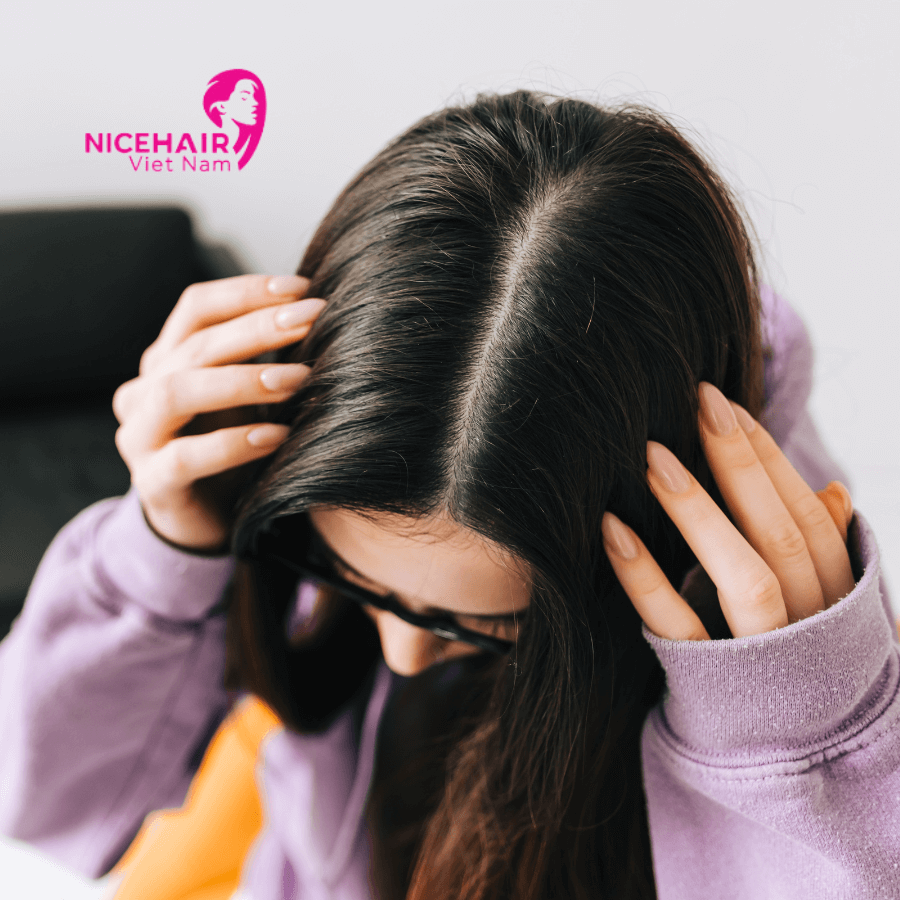
Skin conditions can have a significant impact on the health of the scalp, potentially leading to dryness and discomfort. Among the most common skin conditions that can affect the scalp are eczema and psoriasis, both of which can cause dry scalp issues.
Eczema, also known as atopic dermatitis, is a chronic inflammatory skin condition that can occur on various parts of the body, including the scalp. When eczema affects the scalp, it can lead to dryness, redness, itching, and the formation of small, dry flakes. The constant itching and scratching can further exacerbate the dryness and lead to potential skin infections.
Psoriasis, another chronic skin condition, is characterized by the rapid overgrowth of skin cells, leading to thick, red, and scaly patches on the skin. When psoriasis affects the scalp, it can cause dry, silvery-white scales to form, often accompanied by itchiness and irritation. In severe cases, the scaling can be extensive and may extend beyond the hairline, affecting the forehead and neck.
Both eczema and psoriasis are autoimmune conditions, meaning that they involve an overactive immune response that leads to inflammation. While the exact causes of these conditions are not fully understood, they are believed to be influenced by a combination of genetic, environmental, and immune system factors.
Managing dry scalp caused by eczema or psoriasis requires a comprehensive approach. Individuals with these skin conditions should work closely with a dermatologist to develop a personalized treatment plan. This may include topical treatments, such as medicated shampoos, creams, or ointments containing corticosteroids or other anti-inflammatory agents to reduce inflammation and alleviate dryness.
How to get rid of dry scalp?
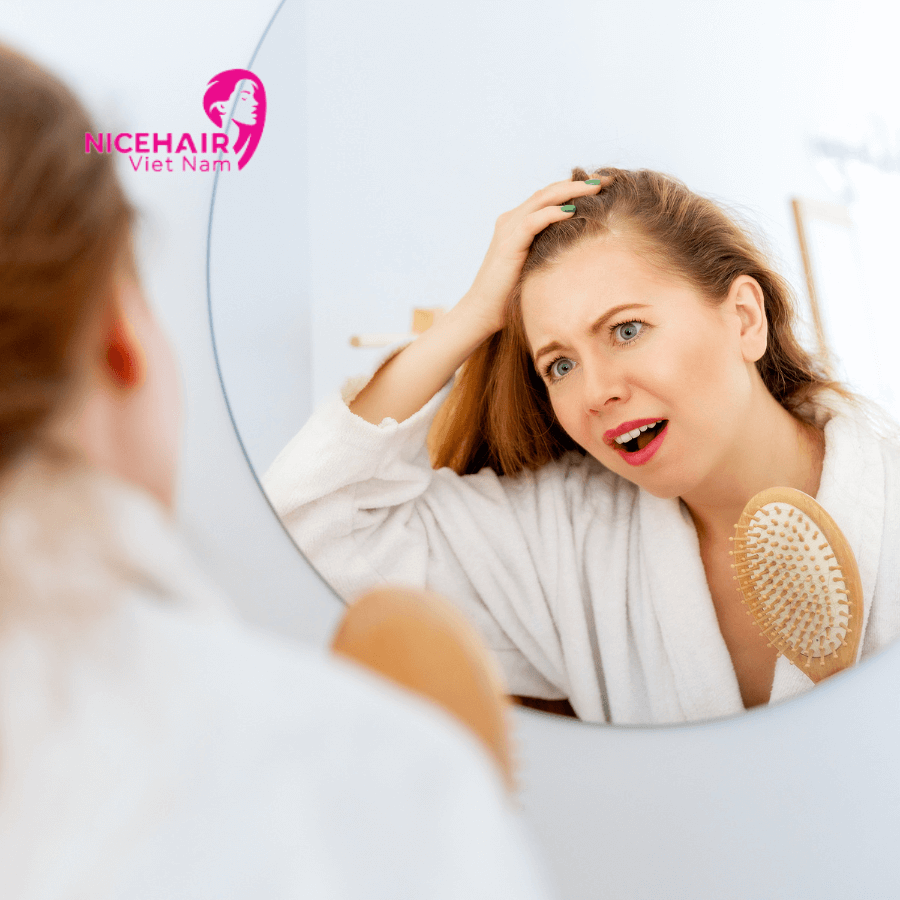
Scalp massage
The practice of scalp massage stands out as one of the most effective and uncomplicated treatments available to combat the discomfort of dry scalp. Through the simple act of massaging your scalp, you can unlock a world of benefits and relief for your hair and scalp health. By gently rubbing your fingertips in circular motions while shampooing or applying nourishing oil, you engage in a therapeutic self-care routine that can significantly improve the condition of your scalp.
The remarkable efficacy of scalp massages lies in their ability to stimulate the production of natural oils. These essential oils serve as a protective and moisturizing barrier for your scalp, preventing dryness and alleviating discomfort. Additionally, the massage action enhances blood circulation to the hair follicles, which plays a pivotal role in promoting optimal hair growth. With increased blood flow, hair follicles receive a greater supply of essential nutrients, fostering an environment conducive to robust and healthy hair development.
Moreover, regular scalp massages have been found to have a relaxing and stress-relieving effect. The gentle touch and rhythmic motions can help reduce tension and anxiety, contributing to an overall sense of well-being. A calm and stress-free mind also has potential benefits for hair health, as stress is known to contribute to hair problems like hair loss and reduced hair growth.
In conclusion, the straightforward and highly beneficial practice of scalp massage can work wonders for dry scalp issues. By incorporating the shampoo into your routine, you elevate the experience with a gentle and clarifying cleanse, coupled with the soothing sensation of a scalp massage. With the added advantages of stimulating natural oil production and promoting improved blood flow to hair follicles, you are setting the stage for a healthier and more vibrant scalp, ultimately leading to luscious, revitalized hair. Embrace this nurturing self-care routine, and you’ll be amazed at the positive transformation it can bring to your hair and overall well-being.
Hydrate
Hydrating your scalp is crucial, just as it is for the rest of your skin. Ensuring that your scalp receives ample moisture is essential for it to function at its best and maintain a healthy balance. Dry and flaky scalp issues can often be attributed to factors such as excessive sun exposure or insufficient water intake, both of which lead to dehydration. Just like your body, your scalp relies on hydration to maintain its natural processes and protect itself from external stressors.
The good news is that addressing this concern is remarkably straightforward and won’t break the bank. In fact, one of the most effective and readily available remedies for dry scalp is simply water. By regularly providing your body with the hydration it needs, you set the stage for a well-nourished and revitalized scalp.
To keep your scalp optimally hydrated and promote overall health, it’s recommended to consume around eight glasses of water per day. Of course, this amount may vary depending on various factors, including your activity levels, climate conditions, and individual needs. The key is to remain conscious of your water intake and strive to drink enough water to stay consistently hydrated.
Regularly hydrating your scalp through both internal and external methods can yield remarkable results. You may notice improvements such as reduced scalp dryness, enhanced hair health, and a radiant appearance. By prioritizing hydration, you’re taking a proactive step towards maintaining a well-balanced scalp and promoting the overall well-being of your hair. So, drink up on that water and treat your hair with the nourishing care it deserves, and you’ll be rewarded with a scalp that feels revitalized, healthy, and thoroughly rejuvenated.
View more: 7 common mistakes that prevent hair growth
Opt for a premium shampoo
Using a high-quality shampoo is paramount when dealing with the discomfort of a dry and itchy scalp. The right shampoo can make all the difference by providing the much-needed nourishment and hydration that your hair and scalp crave. For this purpose, our Chic Collection emerges as the perfect solution, representing our most hydrating and beneficial hair care offering to date.
The Chic Collection is meticulously formulated to cater to the specific needs of a dry and itchy scalp, addressing these concerns with a gentle yet effective touch. Enriched with a blend of nourishing ingredients, this shampoo works harmoniously to soothe and moisturize the scalp, while also revitalizing and hydrating the hair from root to tip. With every use, you can expect to experience a remarkable improvement in scalp comfort and overall hair health.
While using the right shampoo is essential, it’s equally important not to overdo the washing routine. Frequent washing with hot water and shampoo can actually lead to adverse effects, causing your hair to become stripped of its natural oils and essential moisture. To maintain the delicate balance of your scalp and hair, adopting a more moderate approach is recommended.
Instead of daily shampooing, try to space out your hair washes and opt for washing every other day. This way, you allow your scalp to retain its natural oils, which act as a protective barrier and help keep your hair and scalp hydrated. When washing your hair, using lukewarm water is preferable, as hot water can be harsh on both your hair and scalp.
Deep Conditioning
Embarking on a deep conditioning journey can prove to be a rejuvenating and relieving experience, especially when dealing with the bothersome symptoms of scalp itchiness and flakiness that seem to persistently intrude on your day-to-day life. Offering a spa-like indulgence from the comfort of your home, a scalp treatment can work wonders in revitalizing not only your scalp but also your overall hair health.
The beauty of a scalp and hair conditioning mask lies in its ability to provide intense nourishment and hydration, helping to alleviate the discomfort caused by a dry and itchy scalp. By carefully selecting the right mask for your specific hair type, you can optimize the benefits and unlock the full potential of this therapeutic treatment.
For those with fine, thin hair, a lightweight conditioning mask with volumizing properties would be ideal. This type of mask ensures that your hair receives the necessary moisture and nourishment without weighing it down. On the other hand, if you have thick and coarse hair, opting for a richer and more emollient mask will provide the deep hydration and replenishment needed to tame and manage your luscious locks effectively.
Moreover, choosing a conditioning mask enriched with natural ingredients like aloe vera, coconut oil, or argan oil can work wonders in promoting scalp health and enhancing hair texture. These nourishing elements work in harmony to soothe irritated scalps, reduce flakiness, and restore the luster and smoothness of your hair.
To make the most of your scalp treatment at home, it’s essential to follow the instructions carefully and remain consistent in your application routine. Taking the time to pamper your scalp and hair with this indulgent self-care ritual can result in a noticeable improvement in scalp condition and overall hair vitality.
So, whether you’re looking to invigorate your scalp, rejuvenate your hair, or simply take a break from the hustle and bustle of daily life, a deep conditioning scalp treatment might be just the ticket. Embrace the power of a carefully chosen scalp and hair conditioning mask, and let your hair shine with health and vibrancy once again. Treat yourself to this revitalizing experience and bid farewell to the irritation and discomfort that have been hindering your confidence and enjoyment of life. Your scalp and hair will thank you for the extra care and attention, and you’ll feel more refreshed and ready to take on the world with a newfound sense of comfort and beauty.
Summary
In this comprehensive guide, we present four easy-to-follow steps to effectively combat dry scalp and achieve a well-hydrated, healthy head of hair with minimal effort. Dealing with dry scalp can be uncomfortable and bothersome, but fear not, as these four steps will guide you towards relief and nourishment for your scalp.




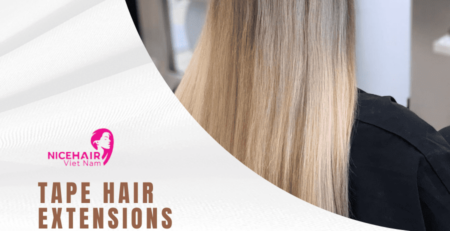
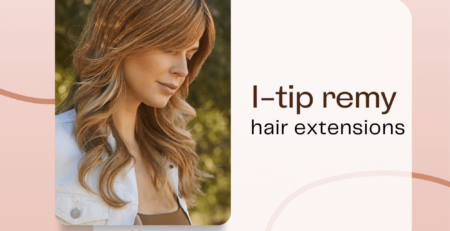

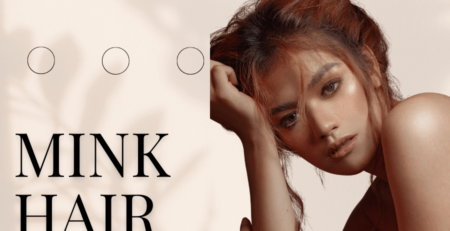

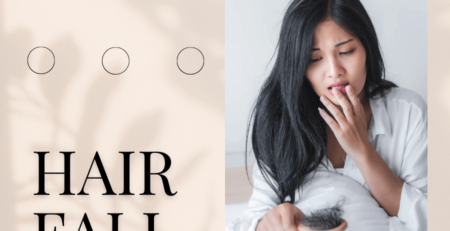

Leave a Reply